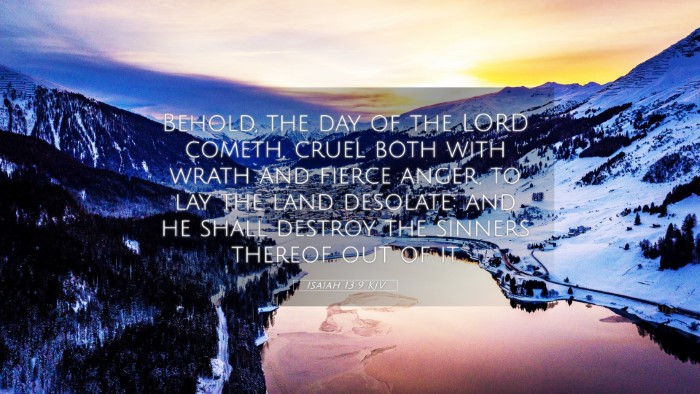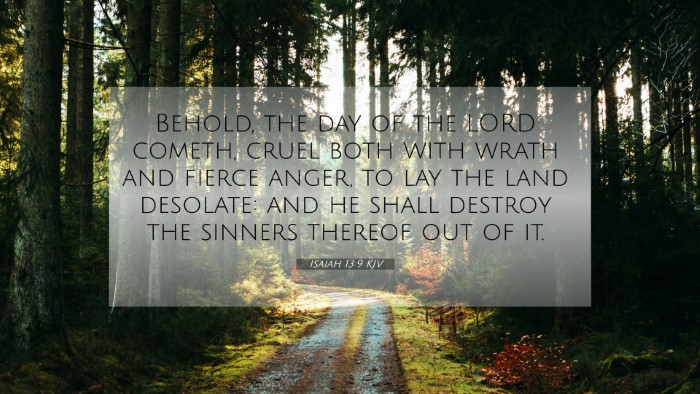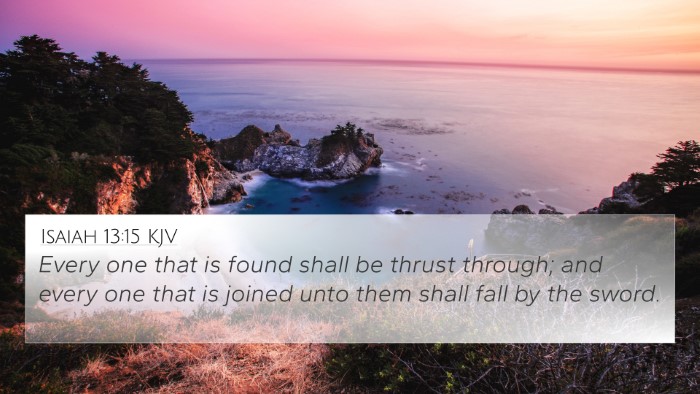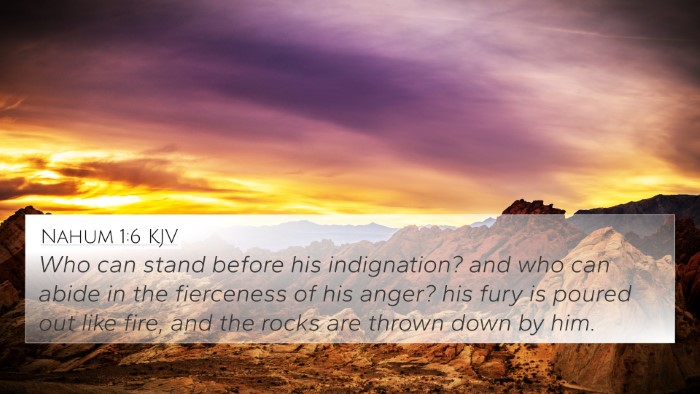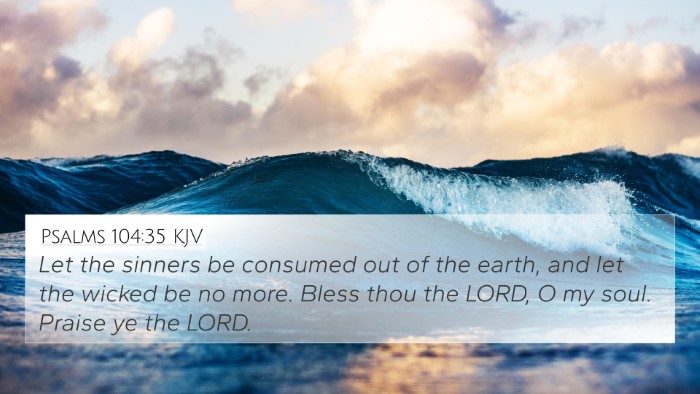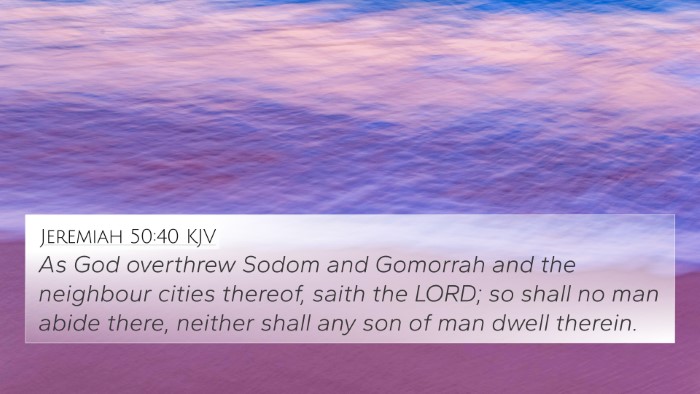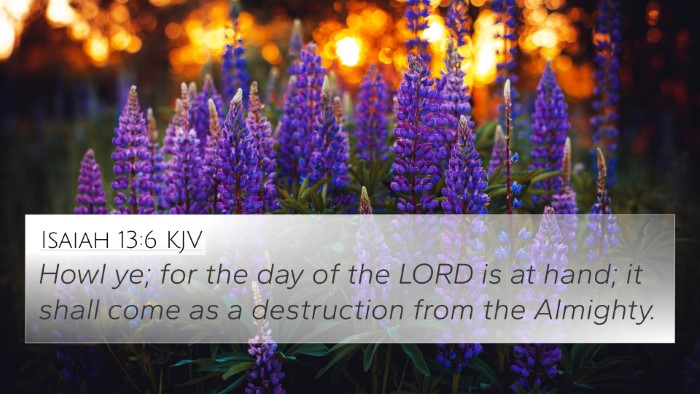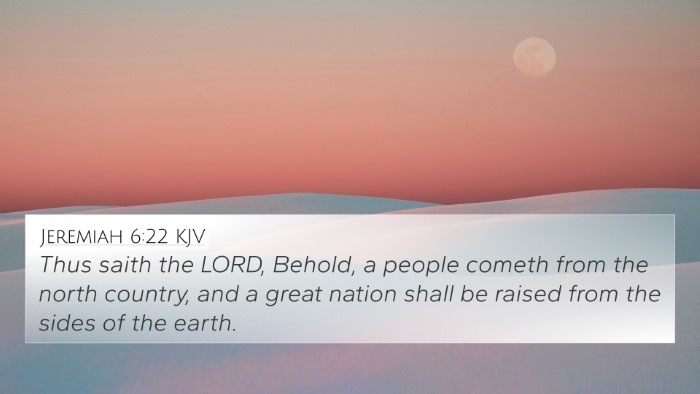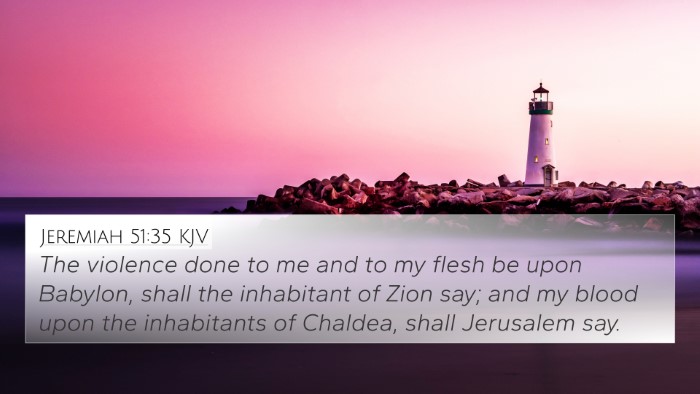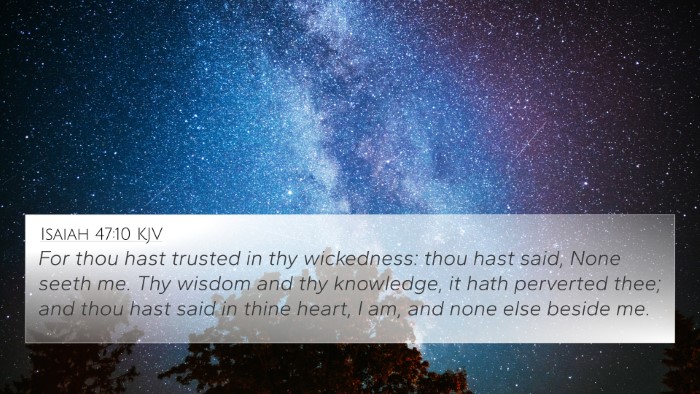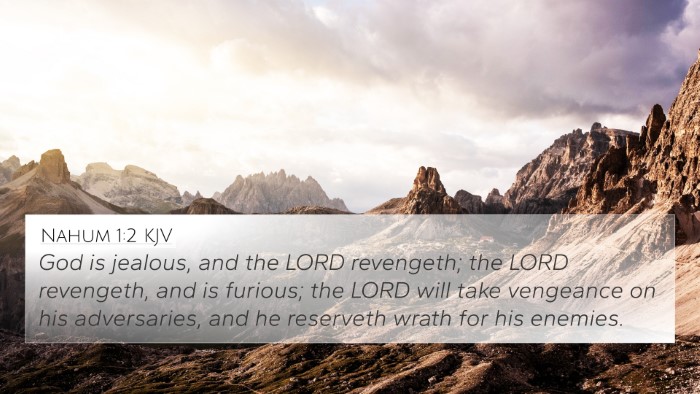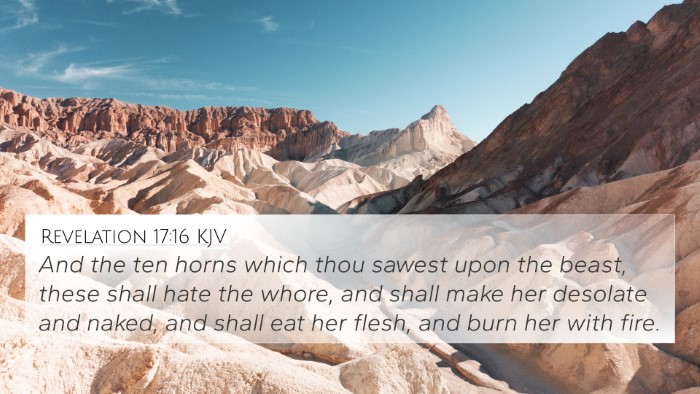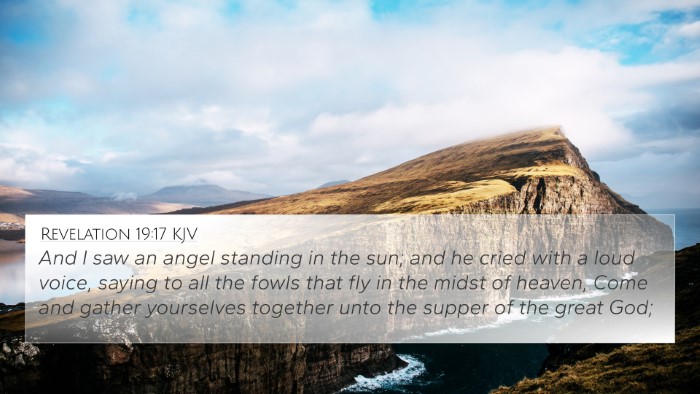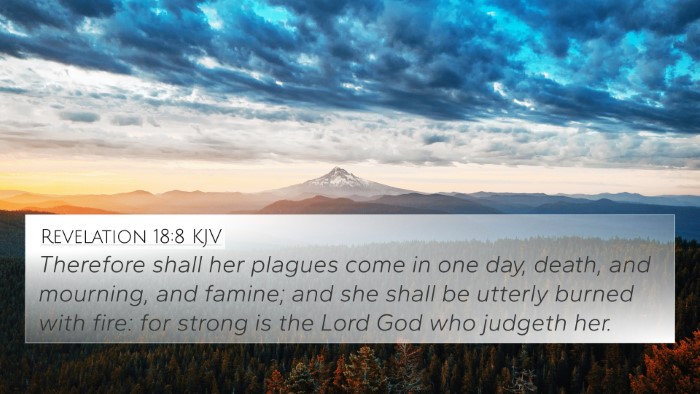Understanding Isaiah 13:9
Isaiah 13:9 states: "Behold, the day of the Lord cometh, cruel both with wrath and fierce anger, to lay the land desolate: and he shall destroy the sinners thereof out of it." This verse serves as a profound prophecy foretelling impending judgment from God, emphasizing the seriousness of divine retribution against sin.
Contextual Overview
Isaiah 13 is a prophetic declaration against Babylon, highlighting themes of judgment and divine wrath. The verse emphasizes that God's anger is directed towards the unrepentant sinners and that the coming judgment will result in desolation.
Commentary Insights
- Matthew Henry: He emphasizes the certainty and severity of God's judgment, noting that the phrase "day of the Lord" signifies a time when God intervenes decisively in human affairs. Henry elaborates that God’s wrath is not arbitrary but a just response to sin.
- Albert Barnes: Barnes connects the coming day of judgment with the historical fall of Babylon. He highlights the notion that God’s justice will lead to the ultimate destruction of sinners, underscoring the idea that God's anger cannot be ignored.
- Adam Clarke: Clarke provides a detailed interpretation, suggesting that the fierceness of God's anger reflects the moral decay prevalent during the time. He warns that such divine judgment awaits any who turn away from God.
Thematic Connections
This verse can be cross-referenced with several other passages that discuss divine judgment and themes of wrath:
- Isaiah 34:8: "For it is the day of the Lord’s vengeance, and the year of recompences for the controversy of Zion." This verse aligns closely with Isaiah 13:9 in discussing the theme of God's vengeance.
- Zephaniah 1:14-15: These verses describe "the great day of the Lord" as a day of wrath, mirroring the sentiment expressed in Isaiah 13:9.
- Revelation 6:17: "For the great day of His wrath is come, and who shall be able to stand?" This verse connects the Old Testament prophetic themes to the New Testament revelation of God's ultimate judgment.
- Matthew 24:21: Jesus speaks of great tribulation, similar to the desolation prophesied by Isaiah, indicating a continuity of God's judgment throughout scripture.
- Jeremiah 25:31: This verse mentions the Lord's judgment over the nations, further illustrating the global scope of divine retribution.
- Romans 2:5: "But after thy hardness and impenitent heart treasurest up unto thyself wrath against the day of wrath," connecting individual responsibility to collective judgment.
- 2 Thessalonians 1:7-9: Speaking on God's righteous judgment, this passage reaffirms the punitive aspect of God's nature against those who do not obey the gospel.
Bible Verse Cross-References
This section highlights how Isaiah 13:9 connects with other scripture, providing a comprehensive guide for studying biblical themes:
- 1 Peter 4:17: "For it is time for judgment to begin at the house of God." This verse echoes the sentiment of divine judgment prevalent in Isaiah 13:9.
- Proverbs 11:21: "Though hand join in hand, the wicked shall not be unpunished." This illustrates the inability of human alliances to escape divine judgment.
- Matthew 12:36: "But I say unto you, That every idle word that men shall speak, they shall give account thereof in the day of judgment." This establishes the principle of accountability that resonates with Isaiah's warning.
Tools for Bible Cross-Referencing
To facilitate study and understanding of connections between Bible verses, the following tools and resources may be helpful:
- Bible Concordance: Useful for finding specific words and verses.
- Bible Cross-reference Guide: Provides systematic passages of related scripture.
- Bible Chain References: Lists certain verses that relate thematically or contextually.
Conclusion
Isaiah 13:9 serves as a powerful reminder of God's holiness and His righteous judgment against sin. Understanding this verse within the broader biblical context reveals connections that can deepen one’s comprehension of scripture. By utilizing cross-referencing tools and resources, readers can explore the inter-Biblical dialogue and thematic Bible verse connections that enrich their study.

